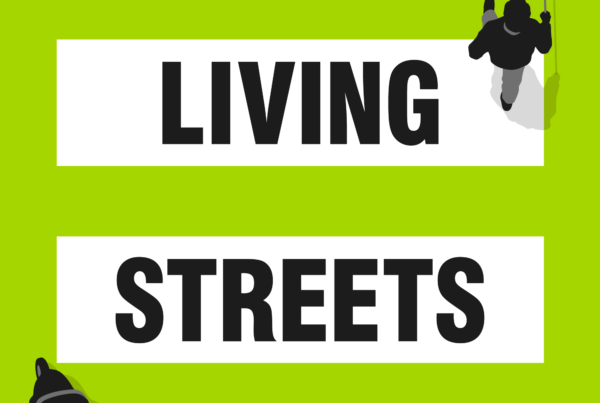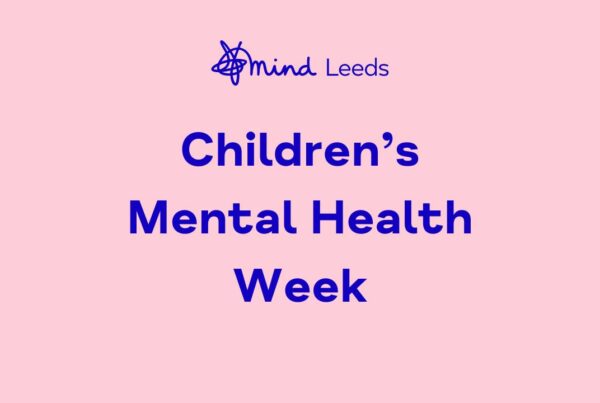Leeds Recovery College provides free workshops, courses, and training to explore, improve and maintain mental health and wellbeing. Their free community courses are available to adults (18+) who live, work or study in Leeds and they take place in community venues. Some awareness workshops are also delivered online.
 Leeds Mindful Employer Project Coordinator, Leigh Staunton, has been talking to Recovery College Coordinator, Bethany Sheridan-Watts about the courses that Leeds Mindful Employer Network members can access and promote to their employees.
Leeds Mindful Employer Project Coordinator, Leigh Staunton, has been talking to Recovery College Coordinator, Bethany Sheridan-Watts about the courses that Leeds Mindful Employer Network members can access and promote to their employees.
What kind of Wellbeing Courses, Workshops and Training can our network members and their employees access?
Leeds Recovery College provides free workshops, courses, and training to explore, improve and maintain our mental health and wellbeing. Our free community courses are available to adults (18+) who live, work or study in Leeds and they take place in community venues. We also deliver some awareness workshops online.
Some of our courses are; Mindfulness for beginners, Wellness Recovery Action Plan (WRAP), Sexual orientation and health, Introduction to balanced eating, Diet and Disordered Eating, Gender Identity: Transgender and non-binary awareness.
We also offer craft and creative sessions too, such as; Writing for self-expression, Paper feathers, Paper weaving, Paper lanterns,
Additionally, we offer free Sound Bath Relaxation Sessions which are a full hour devoted to listening to gongs, drums and instruments whilst letting the vibrations wash over you.
Please book onto any of these community courses via our website.
What makes your courses a little bit different?
What makes our courses a little different, is how they are delivered. People who have a personal experience of living with mental health challenges, work alongside health care professionals, wellbeing trainers and subject specialists to co-design workshops and co-deliver our training.
All of our training is interactive and discussion based, and we keep our course numbers small with on average between 12-14 people per course. We try and foster an environment of reciprocal learning from each other and that whilst the facilitator will present tools and information through the course, we hope that people will also learn from what others on the course share too.
Tell us about the free wellbeing programme you offer to health and care staff in Leeds and who can access these programmes and events.
We provide free training, and wellbeing workshops for all Leeds Health and Care Staff. This includes anyone in Leeds working for the NHS, Primary Care, Private Care Providers, Local Authority, Third Sector and Education. If you aren’t sure if this includes you, please contact us to find out.
We run 4 workshop retreat days which provide a space to think about topics that specifically impact those in health and care workplaces.
The topics are; Self-Compassion, Knowing Your Values, Healthy Boundaries, Choosing Happiness & Self-Care. The days are designed to be safe spaces for staff to spend some time focussing on their own wellbeing whilst stepping away from their day-to-day responsibilities. We do our best to make staff feel supported and cared for throughout these retreats with regular check-ins, refreshments throughout the day and a warm lunch provided.
Additionally, we run a 2-day Wellness Recovery Action Plan (WRAP) course. This is a fantastic opportunity for staff to make a personalised plan that helps them think about getting and staying well.
There are also sound relaxation sessions and yoga sessions available only to staff from this sector and as with all our Community courses, all staff courses are completely free.
What can you tell us about your very popular WRAP course and how it links in with supporting and developing Mental Health First Aiders and Wellbeing Champions within businesses and organisations?
 Our WRAP (Wellness Recovery Action Plan) course is our most popular course and is a brilliant programme. The WRAP course gives students a chance to think about what they are like when their mental health is good, and develop a daily plan around that which helps them identify triggers and early warning signs that their mental health might be slipping. Their plan also considers what they might do if things start to break down. It’s a packed 2-day course which gives people the opportunity to really think about their mental health and making tangible positive changes.
Our WRAP (Wellness Recovery Action Plan) course is our most popular course and is a brilliant programme. The WRAP course gives students a chance to think about what they are like when their mental health is good, and develop a daily plan around that which helps them identify triggers and early warning signs that their mental health might be slipping. Their plan also considers what they might do if things start to break down. It’s a packed 2-day course which gives people the opportunity to really think about their mental health and making tangible positive changes.
Those who are Mental Health First Aiders and Wellbeing Champions will need to lead by example. Undertaking the course will show those they work with that they prioritise their mental health. It will also give them helpful language and ways to help those they are supporting. It will enable them to have different ideas about how to help those that they work with too.
Your courses have a big focus on the importance of self-care. Why is this something people should prioritise?
We can’t pour from an empty cup! A big myth that many believe, is that self-compassion and self-care is selfish or self-indulgent. However, research shows that prioritising yourself and being compassionate to yourself can actually build resilience, can sustain acts of caring for others and can motivate you to make changes within your life.
How can employers in the network help their staff to prioritise self care and engage in wellbeing focussed activities?
Employers can ensure that time is built into the workday for self-care, and they can actively promote wellbeing focussed activities. Seeing this as part of the workday rather than detracting from work-time gives employees full permission to engage. To sustain a work-force with healthy mental health, it is essential that employees mental health is prioritised at all times. Whilst it is important to put in extra support at times of stress, there should also be a consideration for people’s mental health outside of stressful times too.
The culture that is set for a company can have a big impact on people’s mental health, and it is important that the very top level is setting an example of engaging in wellbeing focussed activities themselves, as well as encouraging others to engage in this too.
Where can people find out about your courses and how do they book onto them?
People can view all our courses online and can book onto the course via our website:
Thank you to Bethany for contributing to this blog.



